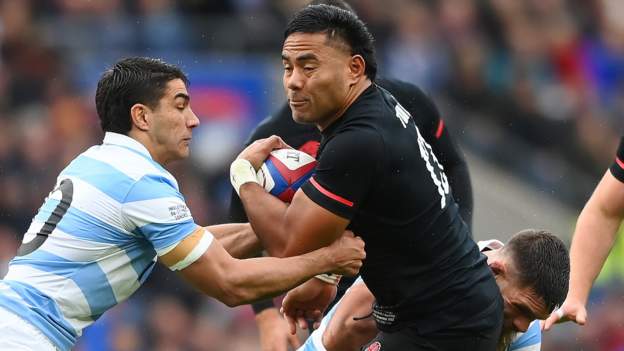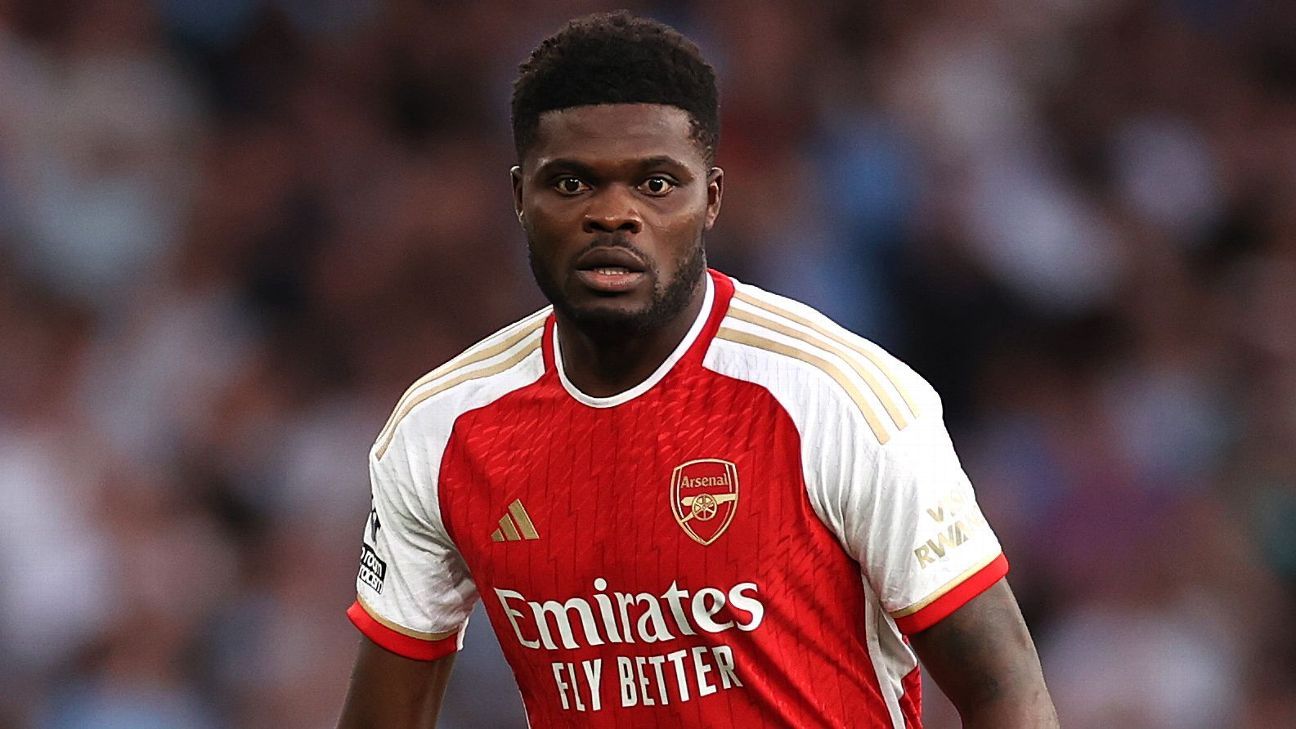
The element of surprise, the sleight of hand, the decoy and deception, arrived eventually.
After an England display soaked in perspiration, but light in inspiration, coach Eddie Jones put on a performance of his own.
You might have expected some anger or irritation. A bit of trademark spike in response to the media. But, after a fifth defeat from nine Tests this year, Jones appeared instead bemused.
"It is hard to put the finger on," he replied to an opening question, like a mechanic mystified by a misfiring car engine.
"I'm not sitting here thinking we've got really strong problems within the team. For the most part I thought we dominated the game.
"We've got to tidy it up a bit, but we made enough line breaks to win probably two games."
He was right in one way.
There was something freakish about the game. A saturated Twickenham surface made the ball soapy and footholds hard to find.
Sidesteps turned into skids, attempts to jackal over the ball turned into costly breakdown belly flops. Referee Andrew Brace was a ruthless judge. He marked England down, contributing to the hosts' 10 penalties.
Then there was Santiago Carreras' score, which came four minutes after Emiliano Boffelli's try and put England deep in a second-half hole.
The Argentina fly-half scooped up a loose ball after Owen Farrell's pass had gone to ground and darted under the sticks.
It was a fine piece of poaching, and it survived a review for a Thomas Gallo knock-on by the tip of a fingernail.
Odd conditions and fine margins certainly. But an eight-point deficit, with nearly 30 minutes to go, a bench full of options and home advantage should not have been beyond England against penalty-prone opponents.
Jones has talked about finding a team with the resilience and brains to puzzle out a way to win. Once again England couldn't quite come up with the solution.
Instead Pumas' spirited defence and moments of accuracy with ball in hand won the day.
No England move was as sweetly timed and slick as the combination between centre Matias Moroni and Carreras for Boffelli's try.
No England players worked as hard without the ball as the back-row trio of Juan Martin Gonzalez, Martin Kremer and Pablo Matera. Each of them hit double digits in the tackle count, a total none of the home side managed.
The visitors combined defensive grind with attacking glitter when it mattered, a cocktail that bent the scoreline their way, regardless of the statistical smallprint.
Owen Farrell, alongside Jones, claimed England had taken a "a step forward in our attack" as he lined up between fly-half Marcus Smith and centre Manu Tuilagi for the first time.
That most marginal of gains went unnoticed by most observers.
"The big thing is not quite finishing them [line breaks] off," he admitted. Some would say it is the biggest thing.
Jones' upbeat tone continued.
"It's a great opportunity for us because we're under the pump a bit which is good and I think we'll respond really well to that. I'm looking forward to it.
"You always want to have a more potent attack but sometimes it doesn't go like that. Sometimes it takes a bit of time to get it right."
You have to assume that, behind the scenes, the tone is different. Because time is not something England, for all the Rugby Football Union's resources, are blessed with.
New Zealand, who ruthlessly dismantled Wales on Saturday, lurk in a fortnight. South Africa, hurting from last autumn's Twickenham defeat, are the other side of that. Even Japan, the opposition in six days time, will have watched with intrigue and interest.
England are third favourites for next year's Six Nations at best, and then the litmus test of the Rugby World Cup awaits.
Good players always look like they have more time than the rest when the spotlight swings on them.
If Jones was hoping to give off the same impression, it, like his team, wasn't quite working.















 Phone: (800) 737. 6040
Phone: (800) 737. 6040 Fax: (800) 825 5558
Fax: (800) 825 5558 Website:
Website:  Email:
Email: 






